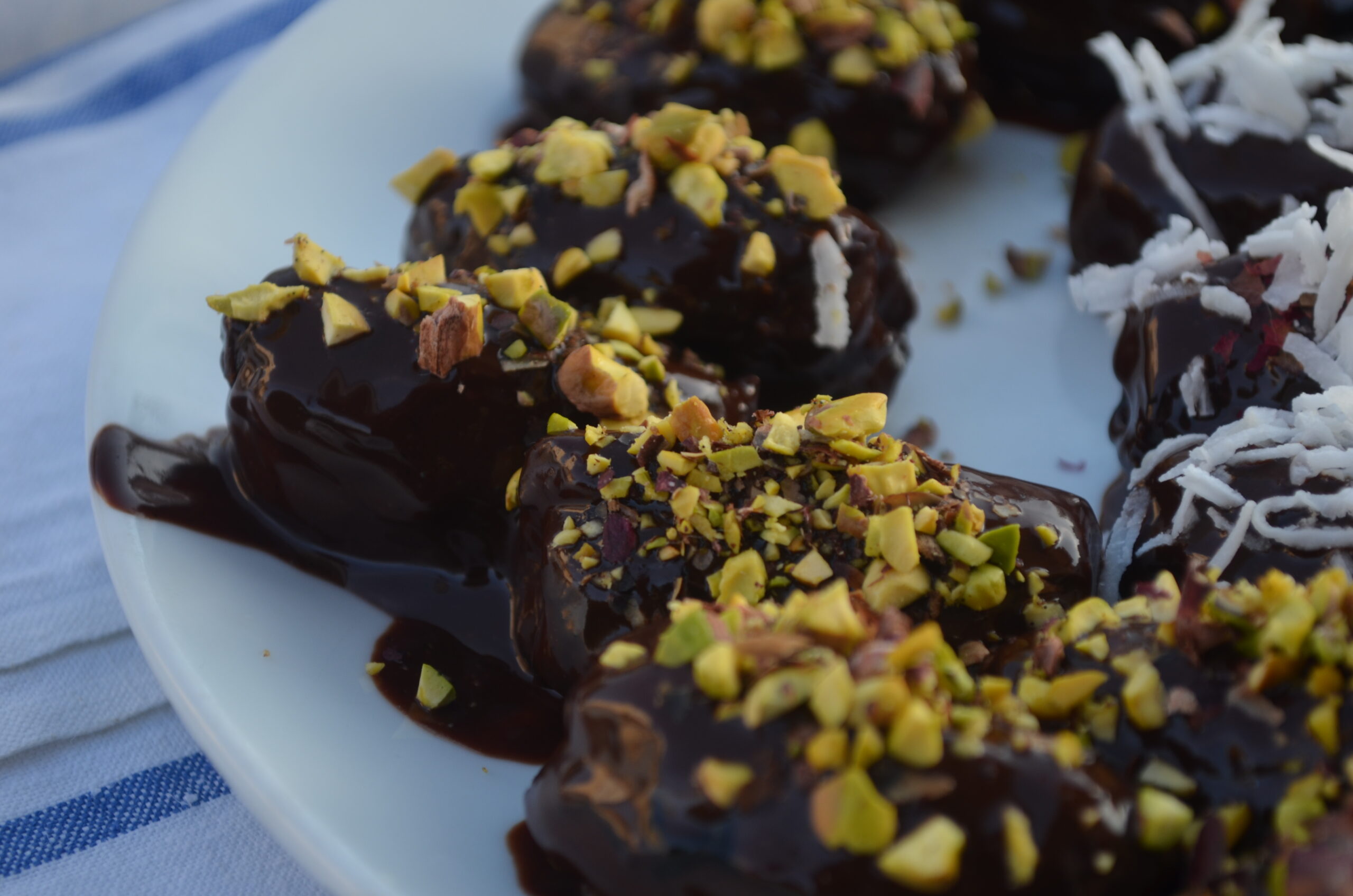How to Simplify Mealtime This Ramadan
By Yvonne Maffei
Mar/Apr 2024

It can feel so ironic: Ramadan is an incredible opportunity to zone in on what’s most important now and to our afterlife, a time to deepen our connection with God and spend less time on worldly desires. Yet it seems a common phenomenon to spend more time shopping for food, cooking, and entertaining. This emphasis on food leaves us with no real quality time for the intended purpose of fasting: to increase our acts of worship.
Fasting is meant to aid in that process by affording us this vast open space of time so that we are free for ‘ibada via such methods as reading more Quran, doing more dhikr, increasing acts of charity and offering extra prayers. However, we can easily end up focusing a bit too much on food preparation and planning entertainment like large iftar gatherings.
Although sharing iftar is a wonderful way to stay connected socially and gain the good deeds of feeding our fellow fasters, there are some important ways to maximize our time in order to derive many benefits from this holy month. With some planning, we can also reduce the stress and overwhelming feelings that creep in by packing too many unnecessary things in a day and over the course of the month.
If you don’t want to be slaving in the kitchen for hours upon hours this Ramadan, yet you want to create delicious and nutritious iftar and suhoor dishes, here are a few of my best suggestions to accomplish just that.
Quality Over Quantity
There is a common saying among great chefs: “You’re only as good as the quality of your ingredients.” Essentially, you really can’t produce great food with low-quality products. I would also add that, more importantly, the food’s quality determines its nutritional value. Choosing the most nutrient-dense foods will provide a power punch of vitamins and minerals to your diet — and you don’t need to consume a large amount to receive that nutrition.
To get those foods, seek out quality, chemical-free ingredients grown in nutrient-rich soil at local farmers markets, organic foods from your local grocer and seasonal and local products from your local food co-operative. Doing so will usually provide a vast increase in your food’s nutritional value than conventionally grown food that has been sprayed with insecticides and pesticides and shipped around the world and across the country to get to your plate. So much of its nutritional value is lost during this process. If you want to be really satisfied when you eat, choose quality over quantity. In addition, you’ll be choosing better health. In this case, less can be more.
Simplicity is Key
There’s really no need to slave over a stove for hours just to put a healthy meal on the table. Some of the best, most flavorful ingredients require minimal processing. When you choose seasonal and local produce, you don’t have to do much to it. In fact, it’s preferable not to add anything extra, for you want to taste the vegetables and fruits and the good meats and fish you’ve brought home, not drown them in flavors and sauces that mask their true essence.
That simplicity brings out their full flavor, satisfies the senses and develops the palette for the taste of real food. Imagine a sun-ripened summer tomato — at most all it needs is a tiny bit of sea salt and a drizzle of good-quality olive oil. Once you’ve tried this, you’ll never want an out-of-season tomato drowning in a sauce that masks its lack of freshness.
Put Family Favorites on Repeat
Who says you must have 30 days of different dishes in Ramadan? One of the most efficient ways to keep things simple and reduce your overall stress about cooking and serving healthy meals during this month is to list, cook and put your family favorites on repeat.
Of course, this list needs to be made well before the month starts. But you can brainstorm your favorites, match them up with what’s in season and plan your shopping. Think practically about how these dishes will work. Are they super time-consuming, for example? Prep ahead of time or think about how they can be simplified to achieve maximum success in making things simpler and tastier.
Sample Meal and Ingredient Suggestions for a Spring Ramadan
Salads are a great dish to consume in the spring because of the nice variety of cold-weather crops like arugula, spinach, red leaf and Romaine lettuce varieties. Utilize all the fresh and in-season leafy green vegetable options, as well as beets, carrots and cucumbers. Add a touch of sumac for a citrus flavor and a very good olive oil for its anti-inflammatory properties.
Another vegetable variety that packs a power punch and is widely available in spring is the vast array of mushrooms. When cooked well, mushrooms can almost make you think you’re eating meat. They’re hearty and earthy, and you can find inexpensive varieties like the Cremini mushroom, which is such a perfect and delicious option. Sauté them in a mixture of olive oil and butter and add only salt, pepper and fresh or dried parsley. This can be a meal in and of itself, as well as a side dish or addition to rice or pasta.

Alternatively, you can make a more delicate dish like Risotto with Asparagus and Green Peas — two wonderfully fragrant and light spring vegetables that pair lovely with fish but can also be a meal on its own.
Even meat has a season and, during the spring it’s spring lamb that will be freshly available, especially if you can source it from a local farm. For large gatherings, roast a leg of lamb. For smaller gatherings, make a lovely rack of lamb with date sauce or oven-roasted lamb chops with just a few added seasonings and fresh or dried herbs like thyme and oregano.
For early morning suhoor meals, keep fresh seasonal fruits like raspberries and blueberries on hand so they can be juiced or made into yogurt parfaits or smoothies.
Desserts don’t have to be complicated, either. Add some melted chocolate, chopped pistachio and coconut to some of those dates you’ll surely have on hand, pop them in the freezer and in just an hour or so you’ll have a chewy, creamy dessert that took less than five minutes to prepare.
To sum up, find the best ingredients and keep the recipes simple to maximize your time and effort. This will also help maximize the flavor and nutritional value of the meals you serve.
Yvonne Maffei, MA, is a food and travel writer, independent researcher, cookbook author and entrepreneur. She is the founder of MyHalalKitchen.com, the first website on halal food and cooking. Her mission is to make global cuisine halal and spread the concept of culinary diplomacy as a means of bringing everyone to the table. Her cookbooks include “My Halal Kitchen” (2016) and “Summer Ramadan Cooking” (2013). She divides her time between the U.S. and Canada — and anywhere else she can travel around the world.
Tell us what you thought by joining our Facebook community. You can also send comments and story pitches to horizons@isna.net. Islamic Horizons does not publish unsolicited material.
